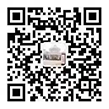必赢线路检测3003
必赢线路检测3003全日制本科生翻译实践案例报告
培养院系 | ___________________ |
专业名称 | ___________________ |
实习生姓名 | ___________________ |
实习单位 | ___________________ |
校内指导老师 | ___________________ |
校外指导老师 | ___________________ |
实习时间: 2023年 8 月 1 日至 2023 年 8 月16 日
必赢线路检测3003必赢线路检测3003
翻 译 实 践 案 例
案例名称:汉字分类翻译案例 |
案例类型:笔译 |
翻译任务描述:2023年8月10日-12日,图书馆书本文章翻译,笔译270字数。 |
译前准备: |
阅读文章内容;查询关于汉字的相关历史,如来源,产生,分类,差异等。 |
翻译案例分析: |
结合国内外口笔译理论和学习的实践技巧,忠实于原文,通顺的传达原文的思想内容;在语言转换的同时做好文化信息的转换。 |
反思/心得体会: |
通过本次翻译实践,我对翻译有了更深的体会和领悟,深刻认识到成为一名真正笔译人员的不易之处。我在译前思考以下两个关于文化翻译问题,分别是为何译和如何译。 一为何译 文化是一个民族、一个国家长期存在、发展的产物,是一个民族智慧的结晶。文化与语言密不可分,相互依存。由于文化之间的差异性,一种语言所承载的文化会让另一种语言的读者感到陌生。我认为文化翻译绝不仅仅是语言文字的转换,也是文化价值的传播。文化翻译也绝不是对文字的保存与记录,它是一种传承,对人类文明的传承,对历史印记的传承。因此,文化翻译的影响强大而深远。正是翻译这种伟大的历史性活动,增进各民族间的交流,推动人类文化的发展。 二如何译 就目前来看,西方的各种思想、理论文学艺术被大量引进国内,而中国文化作品的输出数量远远不及;其次,重视字面翻译远大于对文化内涵的传达。所以, 我认为文化翻译一个重要的难题在于如何正确处理本土文化和外来文化的关系。 我在翻译过程中认识到我在历史方面知识的欠缺,词汇量不足。在遇到不会翻译的句子时,会有放弃的念头。但是我会继续努力,扎实自己的语言基础,提高自己的翻译能力。 |
附录:原文 |
Some Facts on Chinese Characters Six Categories of Chinese Characters According to the Six Categories of Chinese Characters, or liushu, there are six rules of the formation of Chinese characters. They are pictographs,self-explanatory characters, associative compounds, picto-phonetic characters, phonetic loan characters, and mutually explanatory characters. Pictographs use simple, representational, pictorial drawings or symbols to signify what they resemble. Self-explanatory characters use indicative,iconic and abstract symbols or illustration to express a given meaning,such as " 上 " meaning "on" or "upward" and"下"meaning "down" or "downward." Associative compounds combine two or more identical or different ideographic symbols to form new Chinese characters with predictable meanings, such as "从""众""森." Picto-phonetic characters make up more than 80 percent of all characters in modern Chinese. That's a considerable majority. That rule, a perfect combination between form and pronunciation, might give readers clues about how to pronounce the characters. That is because in most cases, one half of a picto-phonetic character is related to meaning while the other half is associated with pronunciation. Phonetic loan characters borrow or make use of existing characters to represent irrelevant homophonous or near-homophonous words. Mutually explanatory characters or transformed cognates are a pair or group of characters which had a similar semantic connotation in early Chinese, but became lexicalized into two different and independent words at a later time. For instance, in the dictionary Xu Shen compiled,there is an example with the characters"考"and"老," which might have once been a same character, meaning "a senior citizen," but they now detach into two words with completely different meanings. |
译文 |
关于汉字的一些事实 汉字分类 根据六书,汉字的形成有六种规则。它们是象形文字、自释字、联想复合词、形声字、语音借词和互释字。 象形文字使用简单、具代表性的图画或符号来表示它们的相似性。不言自明的字符使用指示性、象征性和抽象的符号或插画来表达给定的意义。例如“上”表示“打开”或“向上”,“下”表示“向下”或“向下”。 结合复合词是指将两个或两个以上相同或不同的表意符号结合起来,形成意义可预测的新汉字,如"从"、"众"、"森"形声字在现代汉语中占80%以上。这是相当多的人。这条规则完美地结合了形式和发音,也许能给读者提供一些关于如何发音的线索。这是因为在大多数情况下,形音字的一半与意义有关,而另一半与发音有关。 语音外来字借用或利用现有的字符来表示不相关的同音字或接近同音字。 互释字或转换同源词是早期汉语中语义相似,但后来词汇化为两个不同的独立词的一对或一组字。例如,在许慎编纂的词典中,就有一个例子,其中“考”和“老”这两个字本来可能是同一个字,意思是“老年人”,但现在却拆解成两个意义完全不同的词。 |



